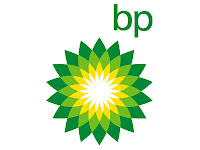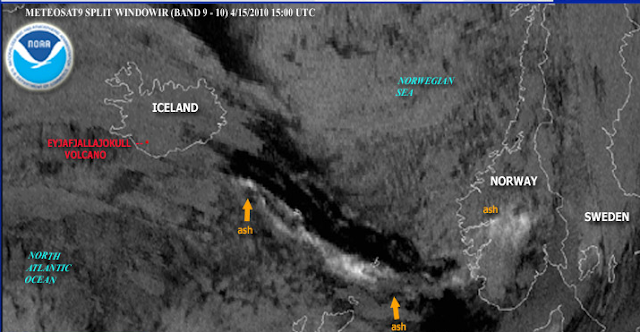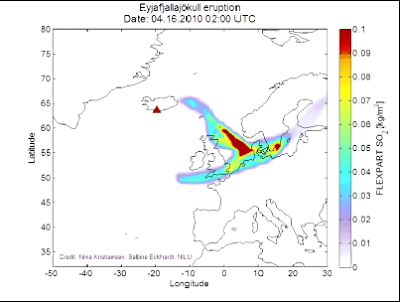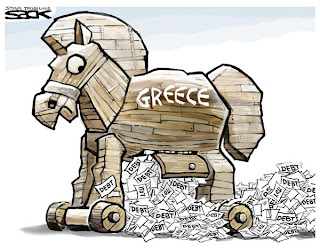Cet article fait suite aux petites notes publiées vendredi 16 Avril
Vendredi après-midi, show time, la nouvelle tombe: Goldman Sachs et un de ses employés, Fabrice Tourre, sont accusés de fraude. Je notais que ce nom me semblait avoir une consonnance française... Eh bien oui! Fabrice Tourre est issu de la fine fleur de nos classes préparatoires, à savoir Henri IV et LLG, suivies d'études à Centrale et un petit détour à Stanford. Un beau parcours donc, et il illustre bien ce qui est inculqué dans ces classes prépas...
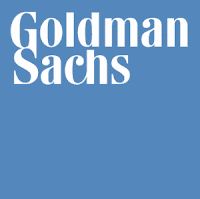
Fabrice Tourre a eu un beau début de carrière également. Vice-président d'une unité de produits structurés a NY chez Goldman Sachs, en 2007, il aurait touché plus de 2 Millions $ selon le WSJ. Il est aujourd'hui basé à Londres. Encore tout jeune, il a à peine 30 ans, il est accusé d'avoir laissé le Fonds Paulson choisir, ou du moins influencer, les composantes d'un véhicule d'investissement composé de valeurs immobilières, nommùé Abacus 2007-AC1. Le problème est bien que Paulson misait sur l'effondrement du marché immobilier, et que Tourre était parfaitement au courant. Abacus a ensuite été utilisé par d'autres investisseurs, sans préciser que le Fonds Paulson, avec ses intérêts propres, avait pris part à la création de ce véhicule d'investissement.
La suite, vous la connaissez, le marché immobilier s'est effectivement effondré, Paulson a fait fortune, et les autres clients mal informés ont été soulagés de sommes tout à fait significatives...
Le centralien était parfaitement conscient de ce qu'il faisait, voici un e-mail rédigé par lui en 2007:
"More and more leverage in the system. The whole building is about to collapse anytime now... Only potential survivor, the fabulous Fab... standing in the middle of all these complex, highly leveraged exotic trades he created without necessarily understanding all of the implications of those monstrosities!!!"
Ce qui donne en français:
"Le bâtiment tout entier est sur le point de s'effondrer à n'importe quel moment maintenant. Seul survivant potentiel, le fabuleux Fab, debout au milieu de toutes ces transactions complexes, à fort effet de levier, exotiques, qu'il a créées sans forcément comprendre toutes les implications de ces monstruosités!".
Voici la seule image que j'ai pu trouver de Fabrice Tourre, sur le site du Telegraph of London:
Tourre est poursuivi à titre personnel pourrait subir une lourde peine, de même que Goldman Sachs qui risque jusqu'à 700 Millions $. Une broutille finalement, pour cette machine à cash, mais cela impactera tout de mêem les résultats de la firme. Cependant, cette affaire est susceptible de durer quelques temps, et je pense que Goldman va surtout perdre en crédibilité, et être encore plus détestée de l'opinion publique. Par ailleurs, cette poursuite par la SEC devrait rendre moins "terrible" aux yeux des Américains une régulation plus stricte des banques, et en particulier de Goldman Sachs... Mais la banque a des ressources et des relations pour rebondir, rien ne prouve d'ailleurs qu'elle sera condamnée. Cependant, les efforts pour améliorer son image sont réduits à néans !
Je rappelle que Goldman Sachs réfute ces accusations et indique avoir perdu de l'argent dans l'affaire: Voici la réaction de GS sur leur site internet:
We are disappointed that the SEC would bring this action related to a single transaction in the face of an extensive record which establishes that the accusations are unfounded in law and fact.
•
Goldman Sachs Lost Money On The Transaction. Goldman Sachs, itself, lost more than $90 million. Our fee was $15 million. We were subject to losses and we did not structure a portfolio that was designed to lose money.
• Extensive Disclosure Was Provided. IKB, a large German Bank and sophisticated CDO market participant and ACA Capital Management, the two investors, were provided extensive information about the underlying mortgage securities.
The risk associated with the securities was known to these investors, who were among the most sophisticated mortgage investors in the world. These investors also understood that a synthetic CDO transaction necessarily included both a long and short side.
• ACA, the Largest Investor, Selected The Portfolio. The portfolio of mortgage backed securities in this investment
was selected by an independent and experienced portfolio selection agent after a series of discussions, including with Paulson & Co., which were entirely typical of these types of transactions. ACA had the largest exposure to the transaction, investing $951 million. It had an obligation and every incentive to select appropriate securities.
•
Goldman Sachs Never Represented to ACA That Paulson Was Going To Be A Long Investor. The SEC’s complaint accuses the firm of fraud because it didn’t disclose to one party of the transaction who was on the other side of that transaction. As normal business practice, market makers do not disclose the identities of a buyer to a seller and vice versa. Goldman Sachs never represented to ACA that Paulson was going to be a long investor.
Background
In 2006, Paulson & Co. indicated its interest in positioning itself for a decline in housing prices. The firm structured a synthetic CDO through which Paulson benefitted from a decline in the value of the underlying securities. Those on the other side of the transaction, IKB and ACA Capital Management, the portfolio selection agent, would benefit from an increase in the value of the securities. ACA had a long established track record as a CDO manager, having 26 separate transactions before the transaction. Goldman Sachs retained a significant residual long risk position in the transaction
IKB, ACA and Paulson all provided their input regarding the composition of the underlying securities. ACA ultimately and independently approved the selection of 90 Residential Mortgage Backed Securities, which it stood behind as the portfolio selection agent and the largest investor in the transaction.
The offering documents for the transaction included every underlying mortgage security. The offering documents for each of these RMBS in turn disclosed the various categories of information required by the SEC, including detailed information concerning the mortgages held by the trust that issued the RMBS.
Any investor losses result from the overall negative performance of the entire sector, not because of which particular securities ended in the reference portfolio or how they were selected.
The transaction was not created as a way for Goldman Sachs to short the subprime market. To the contrary, Goldman Sachs’s substantial long position in the transaction lost money for the firm.
85 Broad Street, Goldman Sachs
Bon dimanche à vous, avec le soleil, et toujours sans avion... Quel calme :)


